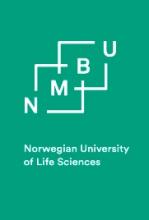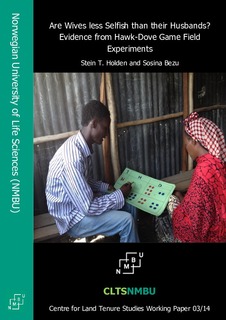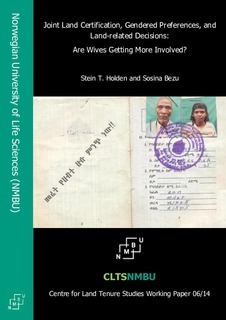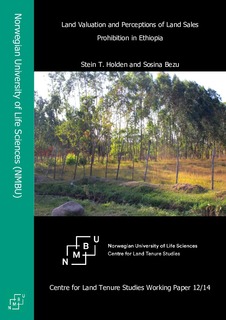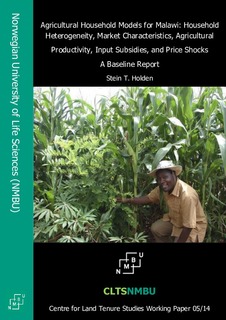Location
NMBU's mission is to contribute to the well-being of the planet. Our interdisciplinary research generates innovations in food, health, environmental protection, climate and sustainable use of natural resources.
About NMBU
NMBU's research is enabling people all over the world to tackle the big, global challenges regarding the environment, sustainable development, how to improve human and animal health, renewable energy sources, food production, and land- and resource management.
Members:
Resources
Displaying 46 - 50 of 98Are wives less selfish than their husbands? Evidence from Hawk-Dove game field experiments
Lab-in-the-field Hawk-Dove game experiments were played by spouses in a rural sample of households in Southern Ethiopia where women/wives traditionally have a weak position. Randomized treatments included a 3x3 design with simultaneous, one-way signaling and sequential games as the first dimension and Pareto-efficient, Pareto-inferior and Pareto-superior (Dove;Dove) payout treatments as the second dimension, with a sequence of six game rounds per household.
Joint land certification, gendered preferences, and land-related decisions : are wives getting more involved?
We have investigated whether joint land certification in Southern Ethiopia has contributed to a strengthening of the perceived land rights of women and an increase in their intra-household involvement in land-related decisions. We use gender-disaggregated household panel data and generate indices for wives’ and husbands’ land rights attitudes and for wives’ involvement in land-related decisions. After controlling for endogeneity of land certification, using a control function approach, we find that receipt of land certificate has strengthened wives’ awareness of their land rights.
Land valuation and perceptions of land sales prohibition in Ethiopia
This study investigates attitudes towards legalizing land sales and Willingness to Accept (WTA) sales prices and compensation prices for land among smallholder households in four different areas in the Oromia and SNNP Regions in the southern highlands of Ethiopia. Household panel data from 2007 and 2012 are used. The large majority of the sample prefers land sales to remain illegal, and the resistance to legalizing land sales increased from 2007 to 2012. In the same period, perceived median real land values increased sharply but also exhibit substantial local variation.
Agricultural household models for Malawi : household heterogeneity, market characteristics, agricultural productivity, input subsidies, and price shocks : a baseline report
This report documents agricultural household models developed for agricultural policy analyses related to the assessment of impacts of agricultural input subsidies and maize technology choices in Malawi. The models have been calibrated to a typology of households in Central and Southern Regions of Malawi based on household survey data collected for the period 2005-2010. Households are assumed to be drudgery averse and rational given their preferences and the resource constraints and imperfect markets they face.
Land valuation and perceptions of land sales prohibition in Ethiopia
This study investigates attitudes towards legalizing land sales and Willingness to Accept (WTA) sales prices and compensation prices for land among smallholder households in four different areas in the Oromia and SNNP Regions in the southern highlands of Ethiopia.
Household panel data from 2007 and 2012 are used. The large majority of the sample prefers land sales to remain illegal, and the resistance to legalizing land sales increased from 2007 to 2012. In the same period, perceived median real land values increased sharply but also exhibit substantial local variation.

